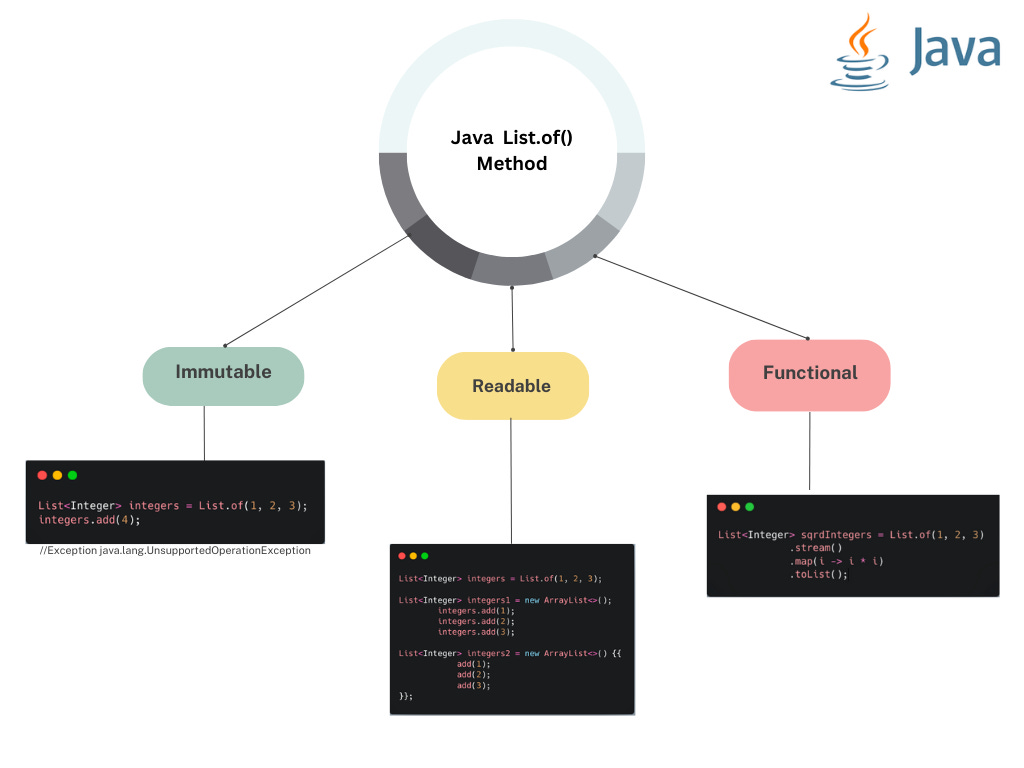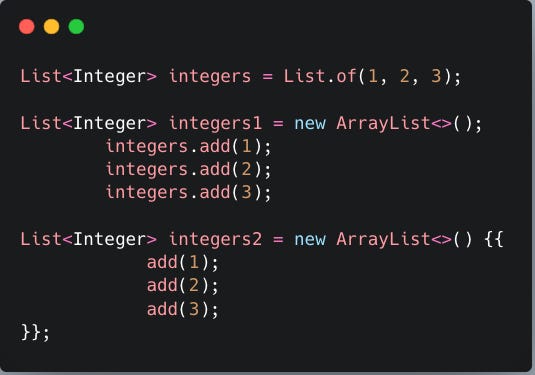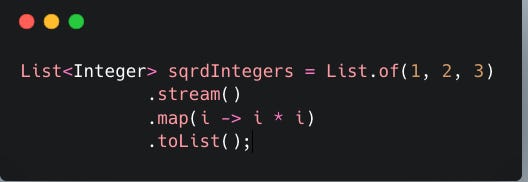Why Java Introduced List.of() Method?
Inspiration for List.of() method In Java
TLDR;
The `List.of()` method introduced in Java 9 provides a convenient way to generate immutable lists.
It was a progressive step from JDK developers to provide concise and expressive ways to work with collections.
Inspiration
The main context and inspiration behind the addition of this method was following trends in functional programming languages.
Languages like Haskell promoted immutability and many languages followed in their footsteps.
Immutability
Immutable collections allow us to write code in a functional style and avoid concurrency issues.
Since any modification to the collection would produce a new collection, the original collection doesn’t get mutated. This is important since now each thread can have its own collection without having to access a shared collection.
Exception in thread "main" java.lang.UnsupportedOperationException
at java.base/java.util.ImmutableCollections.uoe(ImmutableCollections.java:142)
at java.base/java.util.ImmutableCollections$AbstractImmutableCollection.add(ImmutableCollections.java:147)
at ListOfFeature.main(ListOfFeature.java:13)Readability
It aligns with the JDK developer's effort to make code more concise and readable.
`List.of` method allows the developer to create a list with minimal code.
Functional Programming
The introduction of Streams API allowed Java developers to process the elements in the collection as streams of data.
`List.of` complements this effort since it provides an immutable list that can be integrated with Streams API very nicely.
Other Methods
Like `List`, `Set`, and `Map` also have been provided with methods to create immutable collections.
Set has `Set.of` method while Map has `Map.of` and `Map.ofEntries` methods.





